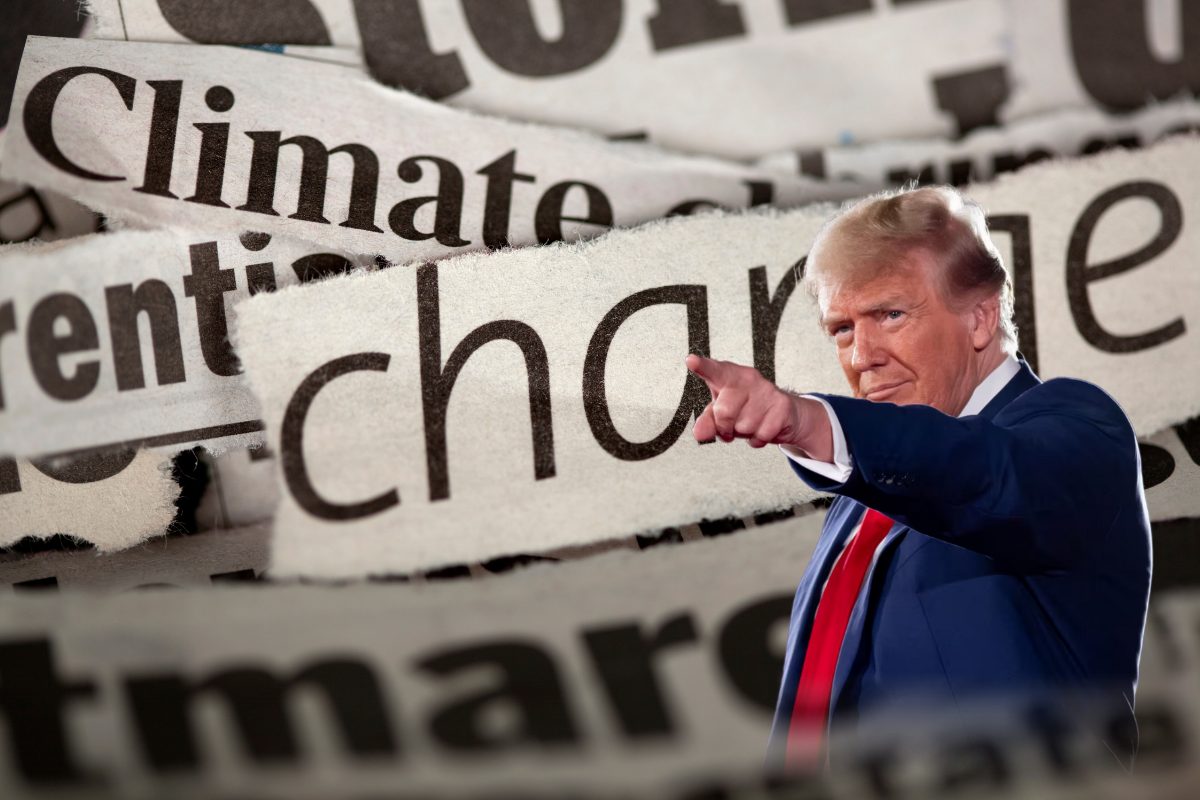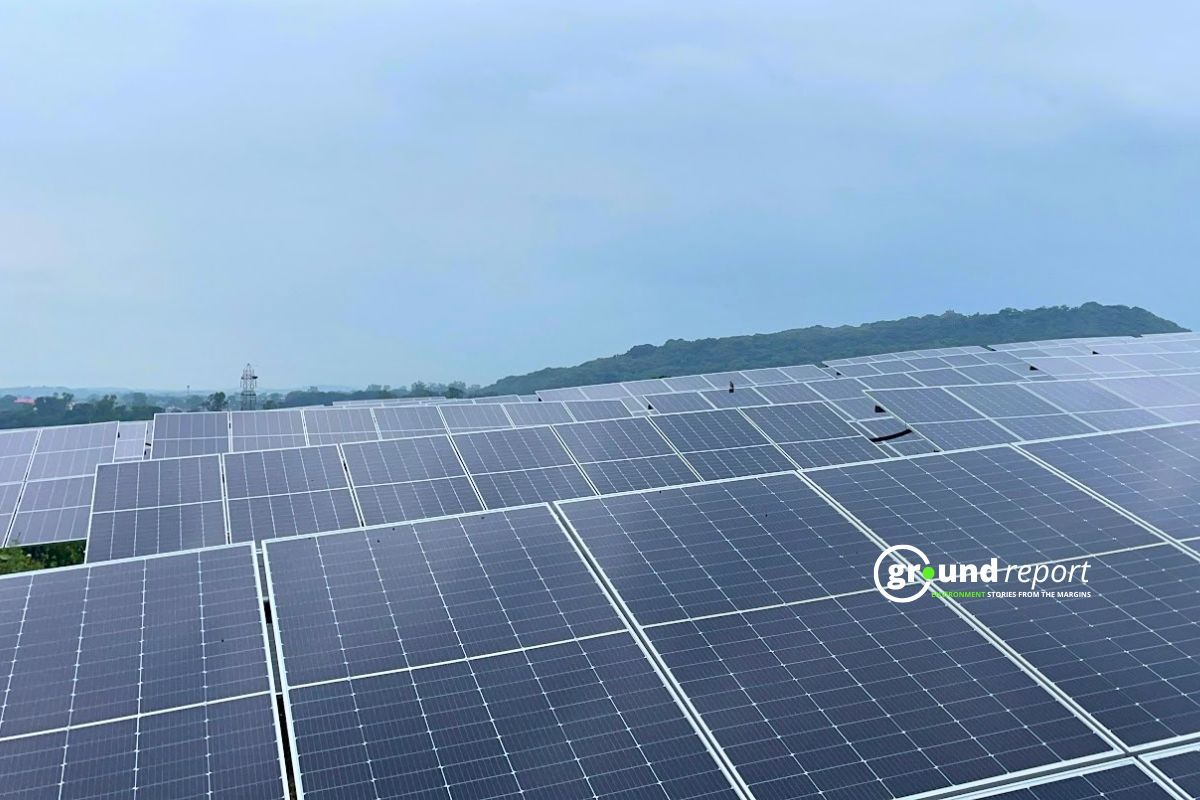The Trump administration has quietly told federal agencies to stop using certain words and phrases linked to diversity, climate change, and social justice. According to internal government documents reviewed by The New York Times, agencies have been instructed to remove or limit these terms from websites, reports, and official materials.
This move is part of President Trump’s broader effort to eliminate “woke” policies in the federal government. Since returning to office, he has repeatedly stated that he wants to remove what he calls “radical leftist” influences from government programs. This language shift is one of the latest steps in that effort.
Some cases appear almost absurd, such as the removal of World War II B-29 aircraft Enola Gay images from a Defense Department database and the erasure of recognition for LGBTQ+ military service members. However, these changes go beyond bureaucratic missteps—they signal a deliberate attempt to control language and limit discourse.
“How can we have intelligent or difficult conversations if we can’t even use the words, the most basic unit of meaning?” said Jonathan Friedman, Sy Syms managing director of U.S. Free Expression Programs. “We now live in a country where the government has decided that a vast range of everyday terms will be erased from agencies, websites, and even scientific research proposals. These prohibitions on language are deeply chilling and will hinder efforts to study real-world problems and expand human knowledge.”
What words are being removed?
Government agencies have either removed, modified, or flagged hundreds of words and phrases. Some of the most notable terms include:
- Diversity, Equity, and Inclusion (DEI): These words have been erased from multiple agency documents, including those related to hiring and education programs.
- Climate change and climate crisis: Some environmental agencies have been told to use more neutral terms like “environmental challenges.”
- LGBTQ+ terms: Websites mentioning LGBTQ+ history and rights have been edited, especially within the National Park Service and the Department of Health and Human Services.
- Systemic racism and social justice: References to racial inequality have been softened or removed from federal reports.
Banned Words List
| abortion | ideology |
| accessible | immigrants |
| accessibility | implicit bias |
| activism | implicit biases |
| activists | inclusion |
| advocacy | inclusive |
| advocate | inclusive leadership |
| advocates | inclusiveness |
| affirming care | inclusivity |
| all-inclusive | Increase diversity |
| allyship | increase the diversity |
| anti-racism | indigenous community/ people |
| antiracist | inequalities |
| assigned at birth | inequality |
| assigned female at birth | inequitable |
| assigned male at birth | inequities |
| at risk | injustice |
| autism | institutional |
| barrier | intersectional |
| barriers | intersectionality |
| belong | intersex |
| bias | issues concerning pending legislation |
| biased | key groups |
| Biased toward | key people |
| biases | key populations |
| Biases towards | Latinx |
| biologically female | LGBT |
| biologically male | LGBTQ |
| bipoc | male dominated |
| Black | marginalize |
| black and latinx | marginalized |
| breastfeed + people | marijuana |
| breastfeed + person | measles |
| Cancer Moonshot | men who have sex with men |
| chestfeed + people | mental health |
| chestfeed + person | minorities |
| clean energy | minority |
| climate crisis | minority serving institution |
| climate science | most risk |
| commercial sex worker | msm |
| community | multicultural |
| community diversity | Mx |
| community equity | MSI |
| confirmation bias | Native American |
| continuum | NCI budget |
| Covid-19 | non-binary |
| cultural competence | nonbinary |
| cultural differences | obesity |
| cultural heritage | opioids |
| Cultural relevance | oppression |
| cultural sensitivity | oppressive |
| culturally appropriate | orientation |
| culturally responsive | peanut allergies |
| definition | people + uterus |
| DEI | people-centered care |
| DEIA | person-centered |
| DEIAB | person-centered care |
| DEIJ | polarization |
| dietary guidelines/ultraprocessed foods | political |
| disabilities | pollution |
| disability | pregnant people |
| disabled | pregnant person |
| discriminated | pregnant persons |
| discrimination | prejudice |
| discriminatory | privilege |
| discussion of federal policies | privileges |
| disparity | promote |
| diverse | promote diversity |
| diverse backgrounds | promoting diversity |
| diverse communities | pronoun |
| diverse community | pronouns |
| diverse group | prostitute |
| diverse groups | race |
| diversified | race and ethnicity |
| diversify | racial |
| diversifying | racial diversity |
| diversity | racial identity |
| diversity and inclusion | racial inequality |
| diversity/equity efforts | racial justice |
| EEJ | racially |
| EJ | racism |
| entitlement | science-based |
| equality | segregation |
| equitable | self-assessed |
| equitableness | sense of belonging |
| equity | sex |
| elderly | sexual preferences |
| enhance the diversity | sexuality |
| enhancing diversity | social justice |
| environmental justice | socio cultural |
| environmental quality | sociocultural |
| equal opportunity | socio economic |
| equality | socioeconomic status |
| equitable | special populations |
| equitableness | stem cell or fetal tissue research |
| equity | stereotype |
| ethnicity | stereotypes |
| evidence-based | systemic |
| excluded | they/them |
| exclusion | topics of federal investigations |
| expression | topics that have received recent attention from Congress |
| female | topics that have received widespread or critical media attention |
| females | trans |
| feminism | transgender |
| fetus | transexual |
| fluoride | trauma |
| fostering inclusivity | traumatic |
| GBV | tribal |
| gay | unconscious bias |
| gender | under appreciated |
| gender based | underprivileged |
| gender based violence | under represented |
| gender diversity | underrepresentation |
| gender identity | underrepresented |
| gender ideology | underserved |
| gender-affirming care | under served |
| genders | understudied |
| Gulf of Mexico | undervalued |
| H5N1/bird flu | vaccines |
| hate | victim |
| hate speech | victims |
| health disparity | vulnerable |
| health equity | vulnerable populations |
| hispanic | woman |
| hispanic minority | women |
| historically | women and underrepresented |
| identity |
In some cases, these changes involve more than just wording. Some policies and programs tied to these terms are also being reconsidered or removed altogether.
According to reports, some federal agencies have received direct orders to delete or reword specific terms on their websites. Others have been given informal guidance to be cautious when using these terms in public statements or grant proposals.
For example, an internal memo at the Federal Aviation Administration (FAA) told employees to avoid emphasizing workforce diversity in job postings. Similarly, the State Department changed a key section of its climate policy page, downplaying the urgency of climate change.
The National Park Service also made changes to its Stonewall National Monument web page, which originally described the 1969 Stonewall riots as a key moment in LGBTQ+ history. The updated page now uses more neutral wording.
The White House has denied issuing a banned words list, instead stating that federal agencies are responsible for interpreting compliance with executive orders that define sex as strictly male and female or eliminate diversity, equity, and inclusion programs. Despite this, some agencies have expanded restrictions to include unrelated terms.
For example, ProPublica reported that at the National Cancer Institute, any topic receiving significant media or congressional attention could be subject to deletion or alteration. Even “cancer moonshot,” a program aimed at cutting cancer deaths in half—originally launched under the Obama administration and championed by Joe Biden—has reportedly been targeted.
Beyond government websites, the impact is already being felt. The Centers for Disease Control and Prevention (CDC) has reportedly removed HIV resources, even when they did not reference so-called banned terms. Scientists are now self-censoring in hopes of securing government grants, a chilling effect that could significantly impede medical and scientific research.
Why is this happening?
Since taking office, President Trump has repeatedly argued that diversity programs and climate policies have gone too far. He has claimed that DEI initiatives favor certain groups unfairly and that climate policies hurt businesses. His administration’s efforts to change government language align with his broader push to reshape federal policies.
Supporters of these changes say they are necessary to remove political bias from government agencies. They argue that taxpayer-funded programs should use neutral language rather than terms linked to progressive movements.
However, critics argue that this is a form of censorship. They say that removing words like “diversity” and “climate crisis” is an attempt to erase important social issues from government discussions. Many believe this is part of a larger effort to reshape public policy by controlling the words used to describe it.
What are the consequences?
Language shapes how people understand issues, and changing official wording can have real effects. By removing terms like “climate crisis,” agencies may downplay the urgency of environmental challenges. By eliminating references to diversity, equity, and inclusion, the government may reduce efforts to address workplace discrimination.
Experts warn that these changes could also affect federal funding decisions. If grant proposals that mention these terms are flagged for review, researchers and organizations might hesitate to focus on topics like racial inequality or climate change.
According to The New York Times, at least 250 government web pages have already been changed, and more updates are expected in the coming months. Since this analysis only covered a fraction of federal websites, the actual number of changes may be much higher.
Is this about free speech?
The Trump administration has presented itself as a defender of free speech, frequently criticizing efforts to limit controversial discussions on social media and in schools. However, critics say this language purge contradicts those claims.
By restricting how federal agencies talk about race, gender, and climate issues, the administration appears to be limiting speech within the government itself. While the president has the authority to set policy priorities, opponents argue that controlling language in this way is a political tactic designed to reshape public debate.
It is unclear how far these changes will go, but this language shift is already having a major impact. Many government employees are uncertain about what they can and cannot say in official communications. Some agencies are reportedly reviewing more documents and websites for possible edits.
With Trump’s strong stance against “woke” policies, it is likely that more words and phrases will be targeted in the future. For now, the battle over language in the federal government is just getting started.
Support us to keep independent environmental journalism alive in India.
Keep Reading
California Fires Live updates: destructive wildfires in history
Hollywood Hills burning video is fake and AI generated
Devastating wildfire in California: wind, dry conditions to blame?
Los Angeles Cracks Under Water Pressure
From tourist paradise to waste wasteland: Sindh River Cry for help
Follow Ground Report on X, Instagram and Facebook for environmental and underreported stories from the margins. Give us feedback on our email id greport2018@gmail.com.
Don’t forget to Subscribe to our weekly newsletter, Join our community on WhatsApp, and Follow our YouTube Channel for video stories.






